-
8th Century BCE
Amos
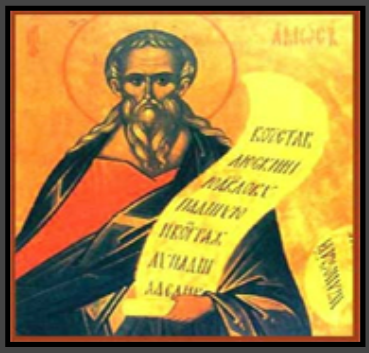
The Hebrew Prophet Amos (8th century BCE) challenged religious and national parochialism by asking in the name of God, Are ye not like the children of the Ethiopians unto me?
Read More“Jewish tradition recognizes 48 male and 7 female prophets or seers active in Old Testament times. Claiming a direct relationship with God, the prophets demanded high ethical standards, challenged social injustice, and articulated the values of universalism and doing justly and loving mercy(Micah 6:8). According to Isaiah (1:17), the end time will be a period of peace and righteousness between men. The biblical prophets shaped the ethics of Christianity and Islam and inspired many secular reformers.” -
2000-1500 B.C.
Rig-Veda
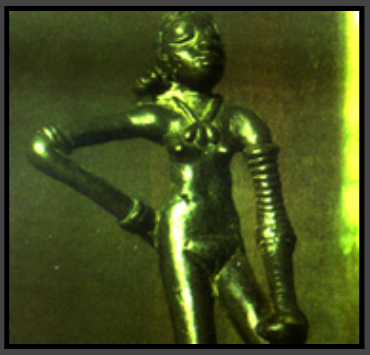
Dancer from Indus Valley civilization which thrived before the arrival from north (c. 1500 B.C.) of Indo-Europeans who imposed lower caste status on darker Dravidian peoples. Credit: National Museum, New Delhi.
Read More“In India, the Hindu caste system originated with the arrival from the north around 1500 BC of light-skinned Aryans who imposed their domination on the indigenous Dravidian people. In the Rig-Veda,a sacred Hindu text, the god Indra blows away . . . from earth and heavens the black skin which Indra hates. In the Ramayana, an ancient Indian epic, the raksasas demons in ugly human shapes reflect upper-caste Brahman fear and loathing of the dark other. The lowest Indian caste the Untouchables was made up of people who were stigmatized for their dark skin color as well as despised status. “ -
1333 B.C.
Egypt
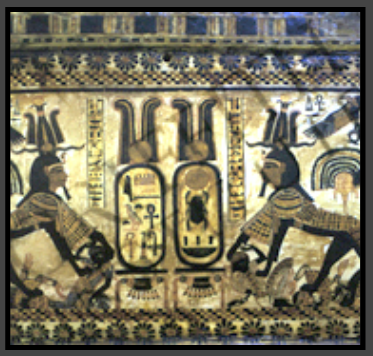
Nubians from the south-depicted here as being slain by pharaonic Sphinxes-were among the foreigners whom Egyptians viewed in racial or ethnic terms. From painted casket of Tutankhamun. Credit: Egyptian/Getty Images.
Read More“The Ancient Near East, the crucible of the western world great religions, was no stranger to racial prejudice. The ancient Egyptians ran the gamut of skin colors. Yet in wall paintings, the Egyptian elites usually pictured themselves as red. Foreign enemies from the north were depicted as white, those from the south as black, and those from the east as yellow.Before it was conquered by the Greeks and the Romans, the land was ruled by dark-skinned kings from Cush on Egypt southern border. Yet though the Cushites also built pyramids and shared Egyptian religion, Egypt elites through most of their country history unfairly viewed the ebony-colored Cushites as backward and inferior.” -
1250 B.C.
Hebrew Slaves

Jews as slaves in ancient Egypt. Wood engraving, 19th century. Credit: The Granger Collection, New York.
Read More“The Egyptians cruelly enslaved a Semitic people from the east of different ethnic origin, called Habirus, who came to known as Hebrews. The Bible explains how the Hebrew slaves were led out of Egypt by Moses; Egyptian historians claimed instead that the Hebrews were expelled from Egypt because they were lepers. Later, in the city of Alexandria, where under Roman rule Jewish immigrants from Israel lived alongside the Egyptian population, Egypt experienced what has been called history’s first pogrom as Egyptians attacked their Jewish neighbors.” -
63-483 B.C.
Buddha
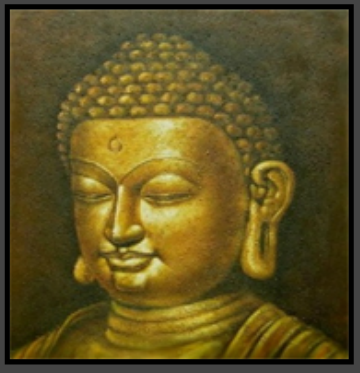
Siddhartha Gautama (c. 563-483 BCE), the founder of Buddhism, declared that Hatred does not cease by hatred, but only by love; this is the eternal rule.
Read More“The 6th century BCE was an extraordinary period for religious and ethical thought associated with the teachings of the Persian seer Zoroaster, Socrates, the Mahavira (the founder of Jainism) and China Lao Tsu and Confucius. No figure was of greater importance than India Siddhartha Gautama who took the name of Buddha, The Awakened One and taught a universal ethics against killing, stealing, lying, sexual misconduct, or intoxicants. Buddhists were enjoined to treat all fellow creatures with compassion as part of their pursuit of inner peace and spiritual harmony.” -
450 B.C.
Greek Slaves
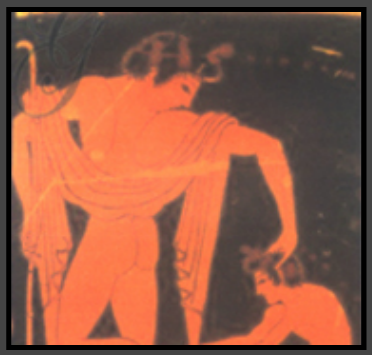
Young Greek master with his slave. Credit: The Granger Collection, New York.
Read More“We view Ancient Greece as the fountainhead of democracy. Yet within the Greek world, humiliating distinctions were deeply etched between citizen and non-citizen, free and slave, man and woman. Democratic Athens was heavily dependent on slave labor. Undemocratic Sparta depended on the manual labor of a class of Helots?slaves owned by the state. Sparta governing class believed in their superiority as the descendants of Hercules while they stereotyped the helots as descending from a different ethnic stock and denied them the right to marry Spartan citizens. Spartan youths were even encouraged as part of their military training to roam the countryside to kill, after dark any Helots whom they should accidentally, on-purpose come upon.Most Greeks shared a disdain for non-Greeks whom they called Barbarians meaning Non-Greek speaking people who mutter ba-ba-ba.The Greeks feared and hated the Persians who invaded their country but were ultimately conquered by Greece under the leadership of Macedonia,Alexander the Great. Though the differences between these two peoples were not racial, the Greeks perceived cultural differences as more than skin deep. Aristotle understood the greater antiquity of the Persians as well as Egyptians yet he viewed their cultures as inferior to Greek civilization, because of its location in a temperate climate zone, and believed that such Barbarians were by nature fit only to be slaves. Ironically, the Greeks agreed with the Persians that women should be kept out of public life and limited to the role of wife and mother. According to Aristotle, women were passive by nature just like slaves.” -
371-289 BCE
Mencius
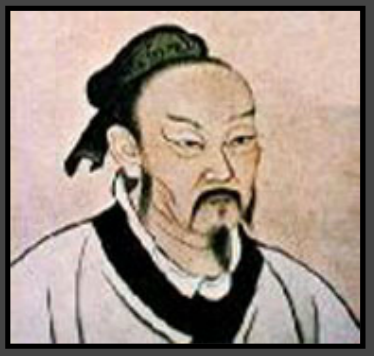
A contemporary of Plato, the philosopher Mencius (c. 371-289 BCE) preached that: The sense of compassion is the beginning of humanity.
Read MoreAmong Chinese philosophers, Mencius (also known as Meng Ke or Ko) is noted for giving Confucian philosophy a new ethical turn. He placed the welfare of ordinary people at the center of his philosophy, and viewed human nature as basically good, but flawed by defective teaching and institutions.” -
4 B.C. - 65 A.D.
Senecca
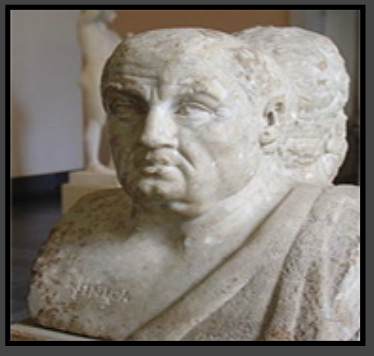
The Roman philosopher Seneca taught:Remember that the man you call slave sprang from the same seed as you, enjoys the same daylight, breathes like you, likes like you, dies like you.
Read More“Though not directly challenging slavery, the Greek and Roman philosophers preached an ethics that tended to humanize the institution. The Stoic philosophers in particular preached a universal ethics that emphasized that the true measure of worth was the moral cultivation of the individual—not worldly distinctions in social status.” -
100 A.D.
Roman Slaves
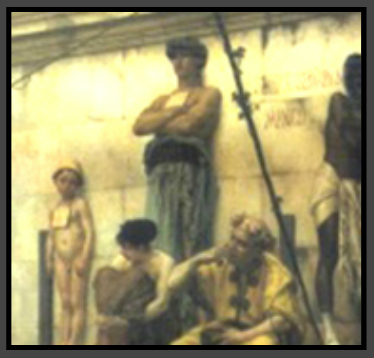
A Roman slave market. Credit: painting by Gustave Boulanger, c. 1882.
Read More“The Romans were equal-opportunity enslavers of other peoples of every race, religion, and nationality. They viewed themselves as inherently superior to the Greeks, Jews, Gauls, Britons, Germans, Scythians, and Africans. They stereotyped their slaves as inferior because of where they came from, how they looked, or their ways of life. Scotland Celtic tribes lived for days on end in marshy bogs, only their heads protruding above the surface, kept alive by a diet of marsh weeds. The Germans were a race of giants who were cruel, brutal, and smelled awful because they smeared their blonde hair with rancid butter. The influential second-century physician Galen drew an unflattering portrait of black Africans in terms of crinkly hair, meager growth of beard, large nostrils, thick lips, frivolous disposition, hypersexuality, and lack of cultural attainment. The cause of alleged black inferiority: the overheated bile produced in the human body by the environment of hot regions. Like the Greeks before them, the Romans usually addressed any adult male slave as boy. As the Roman Empire went into decline, it increasingly became intolerant of foreigners, forbidding Roman citizens from intermarrying with them or from wearing trousers (favored by German ;barbarians) instead of the Roman toga.” -
347-420 A.D.
St. Jerome
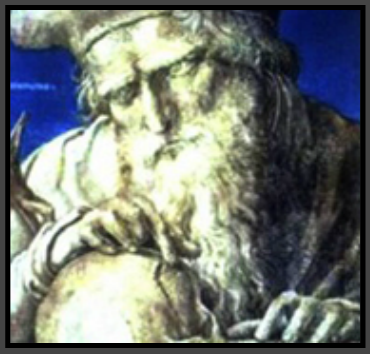
Saint Jerome, father of the Latin Church and harsh critic of Judaism, in his study. Oil on canvas by Albrecht
Read More“In the Roman Empire, Christianity was both offshoot and competitor of Judaism. This relationship inevitably entailed mutual hostility. Initially, the Jews had the upper hand, but this changed drastically when the Emperor Constantine adopted Christianity as the official religion in the fourth century. Previously persecuted Christians were now in a position to persecute Judaism of which St. Jerome wrote:If you call the synagogue a brothel, a den of vice, the Devil refuge, Satan fortress, a place to deprave the soul, . . . you are saying less than it deserves.Over the course of centuries, Christian anti-Judaism crossed the line into a racialized hatred of Jews as Christ killers.The Old Testament contains history first recorded racial slur Can the Ethiopian change his skin or the leopard his spots(Jeremiah 13:23).Many of the early Church Fathers came from North Africa, yet they often used color symbolism in unflattering ways. St. Jerome argued:At one time we were Ethiopians in our vices and sins. . . . Because our sins have blackened us. But afterwards we heard the words: ‘Wash yourself clean’ . . .Now,we are Ethiopians who have been transformed from blackness to whiteness. Ephrem the Syrian offered his own version of the bible story in which Noah says:Accursed be Canaan, and may God make his face black.” -
1000 A.D.
African Slavery
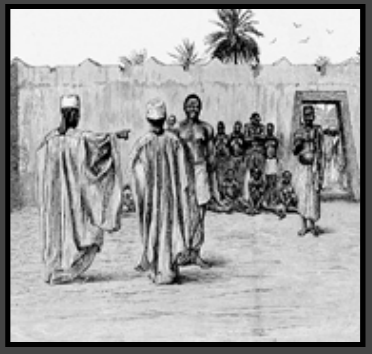
Traditional African slave market. Illustration from 1850. Credit: Time Life Pictures/Getty Images.
Read More“Africa south of Egypt and the Sahara produced powerful kingdoms in Sudan, Ethiopia, and current-day West Africa. Slavery was widespread with enslaved people, often war captives, occupying varied statuses and rarely subject to intense economic exploitation except later on the Muslim clove plantations of East Africa. Where Islam became established, Muslims were supposed to enslave exclusively non-Muslims, but sometimes this rule was violated and black African Muslims were also enslaved and exported to North Africa.Slaves in traditional African societies, even if well-treated, suffered from the condition of social death. They lacked the protections of kinship networks which meant that their lives and those of their families were not secure. There was no warrant in the Koran for castration of male slaves, which was done to staff Muslim harems, or for the practice of female genital mutilation which is still prevalent today in some Muslim African societies.” -
1096 A.D.
Crusades
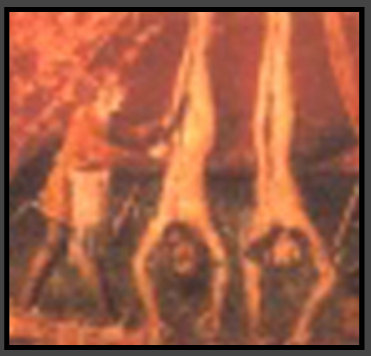
Christians torture Muslim prisoners at time of First Crusade.
Read More“Ostensibly to liberate Christian holy places in Jerusalem from the control of Muslims, Pope Urban II called for the First Crusade at the Council of Clermont in 1095. The objective, the Pope declared, was to destroy that vile race, . . . an accursed race, a race wholly alienated from God,who threatened the faithful of God.Christian writers fantasized that the Muslims were in league with Satan, and speculated that they were altogether Sodomites whose favorite sexual perversion was raping young male captives.On their way to the Holy Land, a contingent of Crusaders under Count Enricho of Leiningen took an unfortunate detour through five cities in the German Rhineland where, over the objections of the local bishops, they robbed and killed hundreds of Jews. This pogrom was also condemned by the fiery preacher, St. Bernard of Clairvaux, who however continued to justify in general religious violence because to kill a pagan . . . gives glory to Christ.Once inside the gates of Jerusalem, where they established a Christian Kingdom that lasted 100 years, the Crusaders massacred many thousands of Muslims at the Temple Mount. Crusader Godfrey Bouillon sworn to avenge the Crucifixion by leaving no single member of the Jewish race alive burned down the city major synagogue while the majority of Jewish residents were praying in it.” -
1135-1204 C.E.
Moses Maimonides
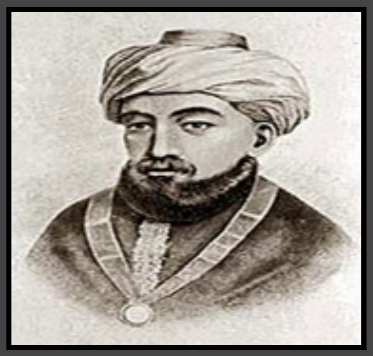
“The Jewish philosopher Moses Maimonides (1135-1204 CE), who advocated reasonableness and moderation in religion,counseled:Anticipate charity by preventing poverty . . . This is the highest step and summit of charity golden ladder.
Read More“Moses Maimonides—theologian, philosopher, and physician—lived during the era of the Crusades when the Muslim world was noted for its relative tolerance of Jews and Judaism. His formative period was in rdoba during Spain Golden Age when Arab and Jewish thinkers collaborated in reviving ancient Greek philosophy. Maimonides a Guide for the Perplexed integrated Aristotle into Jewish thought and articulated a philosophy of rationality, moderation, and philanthropy. Forced to flee Spain when the intolerant Almohade movement rose to power, Maimonides found refuge in Egypt where he became court physician to the Sultan Saladin who took back Jerusalem from the Crusaders and allowed both Christians and Jews to worship unmolested there.” -
1181-1226 A.D.
St. Francis
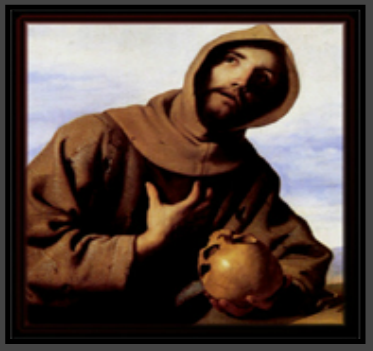
Saint Francis (c. 1181-1226) founded the preaching order in the Roman Catholic Church that bears his name, based on a vow of poverty in service of those in need.
Read More“Saint Francis spent his youth as a troubadour or singer of popular songs before taking up religious devotion. He founded the Franciscan Order in a spirit of dedication to serving the poor. He is known as the patron saint of animals for his love of the environment.” -
1209-1229 A.D.
Heretics
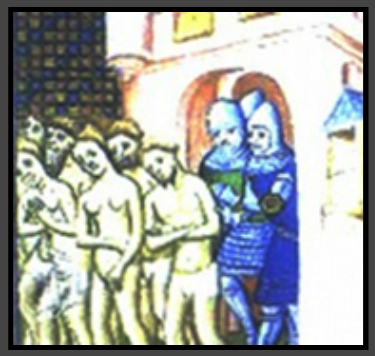
Expulsion of Albigensian heretics (Cathars) from Carcassonne.
Read More“Another target were Christian heretics. In Southern France, the Cathars, who questioned the authority of Catholic priests, were all but wiped out during the Albigensian Crusade (Albi was a local town) launched against them by Pope Innocent III in 1209. In 1252, Pope Innocent IV institutionalized heretic-hunting by issuing the papal bull ad exstirpanda meaning exterminate the heretics.” -
1250 A.D.
Jewish Scapegoats
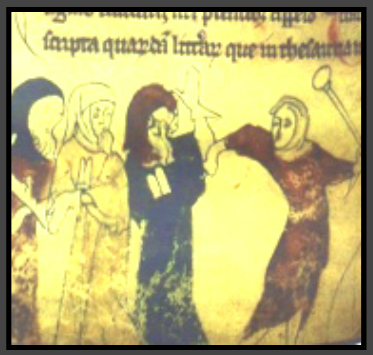
Jew (in black robe) wearing yellow badge and being beaten. From British Chronicles of Offa illustrated by Matthew Paris (c. A.D. 1200-1259)
Read More“Medieval Europeans were obsessed with threats from without from pagan Viking raiders from the north from the Muslims to the south and from the Mongols from the east, viewed as an immense horde of that detestable race of Satan.Yet they were equally obsessed with enemies within.During the era of the Crusades, Europe Jews were portrayed as the spawn of the devil and targeted with bizarre accusations that they poisoned wells and kidnapped Christian children to sacrifice in ritual murders. Christian writers speculated that Jews used Christian blood to alleviate the wound they suffered from circumcision and that Jewish men drank the blood because, allegedly, they menstruated just like women and needed transfusions. Sometimes, Jews were disparaged as dark and ugly, and not at all white like the rest of mankind.Others were segregated in ghettoes. Beginning with England in 1290, one Western European country after another expelled its Jews who were also accused of being involved in international conspiracies with Muslims and Mongols to conquer Christendom.” -
1300 A.D.
China
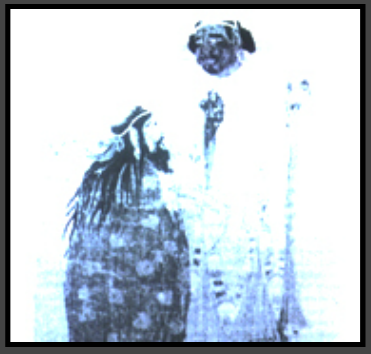
An African man, possibly a merchant, in China at a time when China was importing African slaves who were sometimes disparaged with the term, hei guinu. Credit: Asian Art Museum of San Francisco
Read More“China traditional image as The Middle Kingdom emerged as the imperial center resisted perceived threats from so-called barbarian peoples on the western fringe as well as from the Mongols from the northern steppe. The Mongols eventually breached the Great Wall and ruled China for a 100 years beginning with Kublai Khan (1260-1294). They at first tried to copy Chinese civilization but then turned against it, even considering a policy of killing all Chinese surnamed Chang, Wang, Liu, Li, and Chao (some 90 percent of the population).Previously, in the ninth century, an imperial decree had barred Chinese from having too much contact with people of color from the South and West including Malays, Sumatrans, Indians, Persians, and Arabs. In the fifteenth and sixteenth centuries, the Confucian bureaucrats dismantled Chinas Great Fleet partly out of fear that contact with the outside world was a threat to Chinese culture. The increasingly powerful European peoples were disdained as the vassals that pay China tribute.For a thousand years, Chinese women, especially from the upper classes, bound their feet to further the ideals of female purity and seclusion even though this practice violated the Confucian norm against mutilating the body.” -
1324 A.D.
Mansa Musa
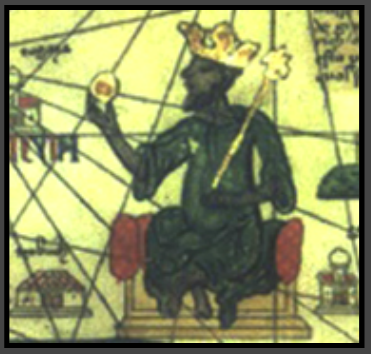
Mansa Musa, ruler of Mali in West Africa’s Sudan, paid a lavish pilgrimage to Cairo and Mecca, accompanied by a gold-laden caravan with 60,000 men including a personal retinue of 12,000 slaves.
Read MoreAs Islam expanded south of the Sahara into Beled es Sudan the country of the blacks, Timbuktu became a great center of Islamic learning and Mansa Musa of the kingdom of Mali was acclaimed for his wealth and piety. Yet the masses of sub-Saharan Africans who did not convert to Islam were typically viewed with contempt. Ibn Khaldun, reputedly the medieval Islamic world greatest geographer, disdained black Africans as close in character to dumb animals. Most of them dwell in caves and thickets, and in savage isolation, and eat each other.Ibn Khaldun favored an environmental explanation of alleged black inferiority other Muslim thinkers favored a biological explanation or even the effects of a divine curse. Such libelous views fueled ongoing racism.” -
1370 A.D.
Lepers
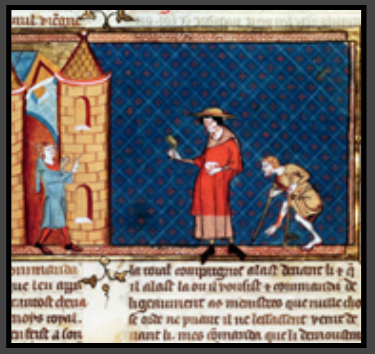
Two lepers begging being turned away. Credit: Bridgman Art Library French Collection/Getty Images.
Read More“Other minorities treated increasingly as social outcasts were Gypsies despised as swarthy, thieving miscreants and lepers. Leprosy was viewed as punishment for sexual sins committed not by learned men who preserve their chastity . . . but by common peasants who cannot control themselves.Lepers were shunned like the living dead. Though in European society there were no racial differences between peasants and aristocrats, writers sometimes portrayed peasants as ugly and deformed because they were supposedly cursed descendents of Cain who in the bible story slew his brother Abel. The aristocrats claimed that the blood of Romans or other ancient heroes coursed through their veins.” -
1400 A.D.
Ainus
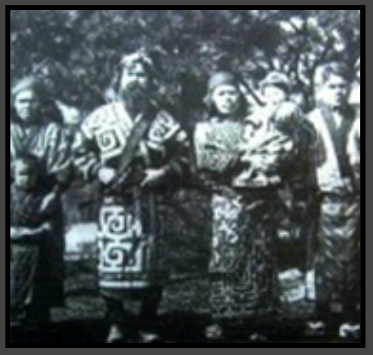
“In traditional dress, a contemporary Ainus who descend from Japan’s indigenous minority who were gradually restricted to the northern island of Hokkaido and pressured to abandon their traditional culture. Credit: 1904 photograph, taken from the book, Ainu: Spirit of a Northern People. Author unknown.”
Read More“Japan managed to repel a Mongol invasion by sea, yet the island Japanese developed their own sense of hyperinsularity. The Ainu people, with features that resembled Caucasians and their own culture, were gradually restricted to the northern island of Hokkaido. Ainu men were pressured to shave their beards, and Ainu women to abandon facial tattoos. Ainus were targets of discrimination including denial of access to the salmon fisheries.” -
1432-1481 C.E.
MehmetII
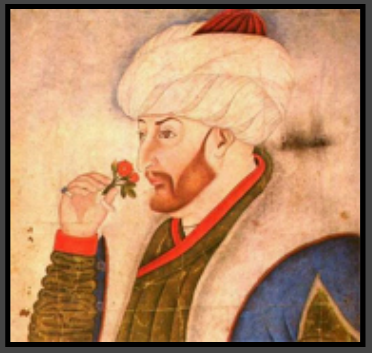
Turkish Sultan Mehmet II (1432-1481 CE), conqueror of Constantinople, treated his Christian and Jewish subjects with tolerance.
Read More“Relative to the behavior of non-Muslim Europe, the Ottoman Turks were noted for their tolerant treatment believers in other religions under the sway of their empire. Under Sultan Mehmet II Christian and Jewish communities were granted a large measure of communal autonomy, though required to pay a special tax in accordance with Islamic law. Mehmet II successors granted refuge to Jewish refugees expelled from Spain and Portugal during the era of the Inquisition.” -
1480 A.D.
Inquisition Victims
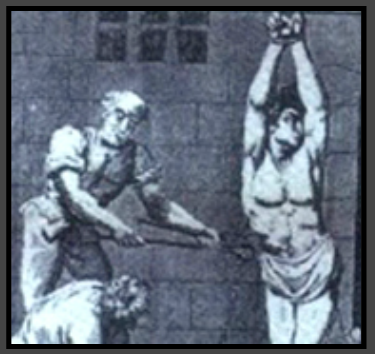
Victims of the Spanish Inquisition, being beaten. From an old print.
Read More“Beginning operations in 1478, the Spanish Inquisition, first under the leadership of Grand Inquisitor, Fray Toms Torquemada, was a critical transmission belt between medieval prejudice and modern racism. Ostensibly, those who professed Judaism were not the Inquisitions target. Instead, its targets were converts called New Christians or, pejoratively, Marranos (pigs). These were people whose families had converted from Judaism to Christianity but were now suspected of continuing to practice their ancestral faith in secret. For a Christian to be a crypto-Jew was an offense punishable by imprisonment, confiscation of property, and even death; ultimately, thousands of such alleged heretics were burned at the stake. Some New Christians did no doubt practice Judaism secretly, but the vast majority probably did not. The real reason many were persecuted was envy of their economic success.The Inquisition used neighbors and even relatives to serve as informers who received monetary rewards for betraying the accused; confessions were extracted by torture; and the rule was guilty unless proven innocent. The very fact that a New Christian had Jewish parents or grandparents was often enough for a finding of guilt. The Inquisition reinforced the attitude in Spanish society that heresy was not primarily a matter of unorthodox beliefs but of bad genes. Jewish ancestry calculated back to one great grand parent was sometimes crime enough to destroy the life of a New Christian& no matter what he believed. Only Old Christians those with limpieza de sangre (pure blood)were trusted.” -
1482 A.D.
Homosexuals
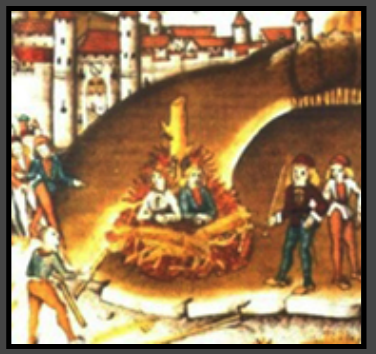
“Gays, lesbians, and transgender people also faced intensifying persecution for sexual deviance during the medieval and early modern periods. Marriages between gay men had once been tolerated, but this ceased to be the case during the Middle Ages. Engraving: The burning of the knight of Hohenberg with his servant before the walls of Zurich, for sodomy, 1482.
Read More“During the Middle Ages and thereafter, European society became obsessed with enemies within.In addition to Jews, Gypsies, Christian heretics, lepers, and beggars, another group fell under increasing suspicion. Marriages between gay men had once been tolerated, but this ceased to be the case during the Middle Ages. A consensus emerged that sodomy is so filthy and grave that anyone who commits it deserves death by fire.” -
1492 A.D.
Expulsion of the Jews
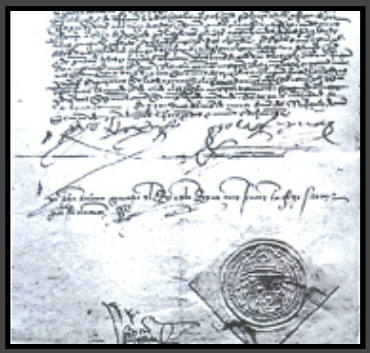
The Edict of Expulsion (also known as the Alhambra Decree), issued on March 31, 1492, by Isabella of Castile and Ferdinand II of Aragon, ordering the expulsion of all Jews from the Kingdom of Spain and its territories and possessions by July 31 of that year.
Read More“Spanish Muslims, mostly agricultural laborers, were called Mudejars. Those who converted to Christianity were known as Moriscos. These converts from Islam were also suspected of secretly practicing their old faith and received similar treatment to the Jews. The underlying assumption was that Judaism and Islam were contagious diseases which Christians with Jewish or Muslim pedigrees were particularly susceptible. This meant, for example, avoiding Jewish wet nurses because being suckled by Jewish vileness would corrupt the infant with perverse inclinations.How best to protect New Christians from being infected by Judaism or Islam? By expelling Spain Jews and Muslims who might infect them by contact. This happened in 1492 when at least 200,000 Spanish Jews were expelled, followed by the expulsion of over 300,000 Spanish Muslims. -
1500 A.D.
Ptolemaic map
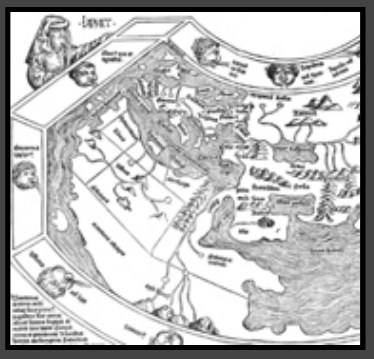
“The biblical view of one human family shown in this Ptolemaic world map with portraits of Noah’s sons, Shem, Ham, and Japheth was challenged by the Pre-Adamite theory of multiple human origins favored by racists. Woodcut from the Nuremberg Chronicle,1493. The Granger Collection, New York.”
Read More“Soon after Columbus made landfall in 1492 and it became clear that the heavily-populated island he named Hispaniola was not an outlying province of India or China, learned Europeans were presented with an unprecedented dilemma: explaining who were the Native Americans and how did they get there? The great challenge was to square the vast populations of the Americas with the biblical account of humanitys common descent from Noahs three sons: Shem, Ham, and Japheth. The most popular explanation was that new world peoples descended from Shem,the father of the old world Jews. The Indians were imagined to be the Lost Ten Tribes of Israel who arrived in the Americas either by sail from the Middle East or, more circuitously, by an ancient land bridge with Asia.The alternative, even more controversial explanation the polygenetic hypothesis denied the unity of the human species. Around 1600, Giordano Bruno and Lucilio Vanini (both burned at the stake by the Catholic Church as heretics) had speculated the Ethiopians were subhuman and perhaps descended from apes. In 1655, Isaac de la Peyr re offered daring speculations about the rest of the global population. He reinterpreted the biblical Book of Genesis in order to argue that not everyone was descended from Adam and Eve through Noah. Before Adam and Eve were created, another race existed. These people were pre-Adamites.They provided a wife for Cain, after he killed his brother, Abel, and became the ancestors of the peoples of Asia, Africa, and the Americas. Subsequent thinkers (though not de la Peyr re used this theory to argue that Europeans were superior descendants of Adam but Amerindians and other nonwhite peoples belonged to races that were inferior as well as separately created.” -
1540 A.D.
De Soto
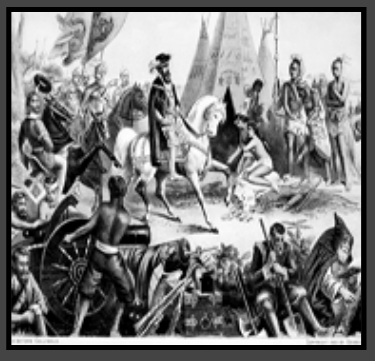
Spanish Conquistador Hernando de Soto (c.1500-1542), who journeyed in search of gold from Florida as far west as Texas. Credit: The Granger Collection, New York.
Read More“Long before the English established their first permanent settlement at Jamestown in 1607, the Spanish had explored or conquered most of the Caribbean and Central America, Peru, Mexico, and the current U.S. from California to Florida. Portugal colonized Brazil in the 1550s.The Iberian colonizers set the pattern for both new world race relations and slavery. Unfortunately, the consensus Spanish view of Native Americans, expressed by the historian Gonzalo Fernandez de Oviedo, was that[they are] naturally lazy and vicious, melancholic, cowardly, and in general a lying shiftless people. Their marriages are not a sacrament but a sacrilege.On the other hand, Bishop Bartolom de Las Casas waged a heroic, partly successful struggle to convince the Spanish King and the Pope that the natives were not natural slaves or dumb brutes but should be treated as truly men.Columbus and succeeding Conquistadors justified enslavement of Amerindians by equating them with the cannibalistic Caribs and Aztecs. But the Spanish conquerors treated with special cruelty the gentle, friendly Tainos of Hispaniola who died in the millions from disease or exploitation. As a practical matter, Las Casas only alternative to enslaving the indigenous population was to import African slaves instead.” -
1542-1605
Mogul

Akbar the Great (1542-1605), Jalaluddin Muhammad Akbar, promoted religious tolerance during his rule of the Moghal Empire in Northern India and Afghanistan.
Read More“At the time of Akbar rule, the Mughal Empire included both Hindus and Muslims. Profound differences separate the Islamic and Hindu faith. When Akbar commenced his rule, a majority of the subjects in the Mughal Empire were Hindu. However, the rulers of the empire were almost exclusively Muslim. In this highly polarized society, Akbar fostered tolerance for all religions. He not only appointed Hindus to high posts, but also tried to remove all distinctions between the Muslims and non-Muslims. He abolished the pilgrim tax in the eighth year and the jizya (tax on non-believers) in the ninth year of his reign, and inaugurated a policy of universal toleration. He also enjoyed a good relationship with the Catholic Church, who routinely sent Jesuit priests to debate in his court, and at least three of his Grandsons were baptized as Catholics (though they did become Muslim later in life). Akbar built a building called Ibadat Khana (House of Worship), where he encouraged religious debate. Originally, this debating house was open only to Sunnis, but following a series of petty squabbles which turned ugly, Akbar encouraged Hindus, Catholics and even atheists to participate.” -
1543
Luther
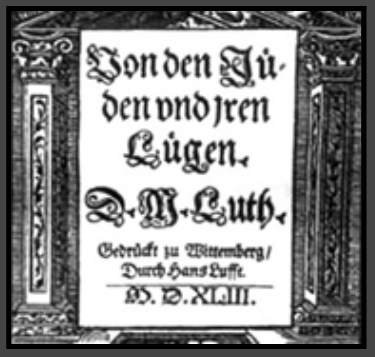
“Title page of The Jews and Their Lies by Protestant Reformer Martin Luther (1483-1546) who became a bitter enemy of Jews.
Read More“In 1517, German monk Martin Luther broke with the Roman Catholic Church. He helped precipitate the Protestant Reformation that eventually triumphed in much of Northern and Western Europe. During this period, Catholic and Protestant rulers ravaged each other territories, for example,over the course of the Thirty Years War (1618-1648). Initially, Luther voiced sympathy for Europe Jews.When the Jews did not become Protestants, however, Luther exploded in frustration and wrath in a 200-page pamphlet:The Jews and Their Lies(1542). The Jews according to Luther were greedy and rapacious:When a thief steals ten guldens, he is hanged; but when a Jew steals ten barrels of gold through his usury, he is prouder than the Lord himself!He argued that the Jews cannot assimilate to western society or be trusted ever to embrace Christianity:No one wants them. . . . Know, O adored Christ, and make no mistake, that aside from the Devil, you have no enemy more venomous, more desperate, more bitter than a true Jew who truly seeks to be a Jew. . . . It is as easy to convert a Jew as to convert the Devil. This verged on racial antisemitism.Luther program to solve the Jewish problem was to burn down their synagogues, confiscate their holy books, forbid them from praying in their own way, enslave them, or expel them from the country.Luther antisemitism cast a long, dark shadow over Protestant-Jewish relations, especially in Germany.” -
1555
Witches
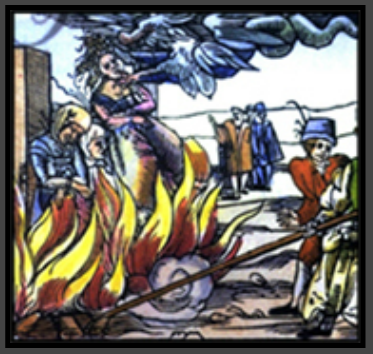
A broadside of the public burning of three witches in Germany, 1555. Credit: The Granger Collection, New York.
Read More“Catholic and Protestant rulers competed with each other in burning or hanging witches of both genders. Women were special targets of intolerance. Female prostitutes were often excommunicated and expelled from cities. Female midwives were also increasingly under suspicion for witchcraft. In 1486, Dominican monk, Heinrich Institoris, published the Malleus Maleficarum Hammer against the Witches, an influential judicial manual instructing witch hunters to look for such incriminating signs as a birthmark the witch tit on a woman body. Male witches warlocks were often said to take the form of black men.” -
1572
Huguenots
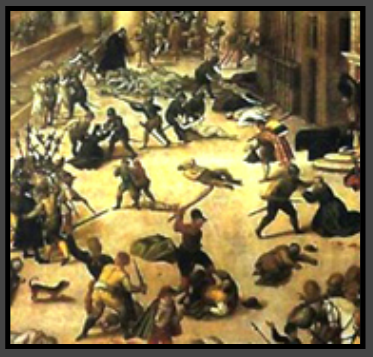
The St. Bartholomew Day Massacre of Huguenots (French Protestants) at Paris, 1572. Contemporary painting by Francois DuBois.
Read More“During the period of the Protestant Reformation and Catholic Counterreformation, Catholic and Protestant rulers ravaged each other?s territories. There was the massacre of French Protestants or Huguenots on St. Bartholomew Day in 1572 and mass slaughter on both sides during the carnage of the Thirty Years? War of 1618-1648, fought mainly in Germany.” -
1583-1645 C.E.
Grotius
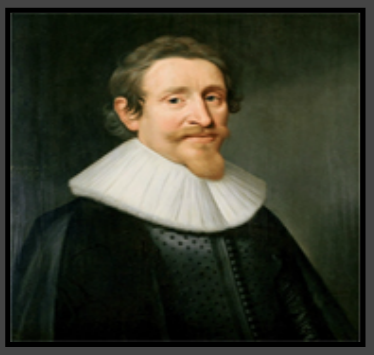
The Dutch philosopher Hugo Grotius (1583-1645 CE) condemned religious persecution because if people err the only thing we can do is not to accuse them with hateful recrimination for their unintended error, but to relieve the misery of their ignorance by a kindly explanation.
Read More“During the Catholic-Protestant religious wars of the 17th century, Hugo Grotius was among those who laid the intellectual foundations for the rise of the tolerant philosophy of the 18th-century Enlightenment. In The Law of War and Peace articulated norms to govern civilized international relations rooted in a universal natural law transcended differences between nations and religions. Though a Protestant, he was tolerant of Catholics and Jews, and urged rulers to respect individual conscience or their subjects.” -
1592 A.D.
Poor
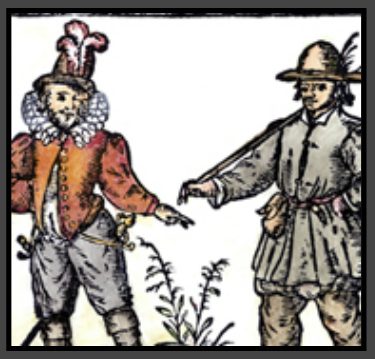
Elizabethan Courtier and poor English countryman. Woodcut from Robert Greene’s A Quip for an Upstart Courtier,1592. Credit: The Granger Collection, New York.
Read More“The English of Shakespeare time had targets close to home to fear and hate. Among these were increasing numbers of unemployed many, vagabonds who were viewed as Miserable, Diseased, Ignorant, Idle, Seditious, and otherwise Vicious.The Statute of Labourers of 1576 established workhouses in which the poor were treated not much better than slaves; later, they were required to wear clothing with a distinctive red or blue for poor emblazoned on the shoulder.” -
1597 A.D.
The Merchant of Venice

Shakspeare’s villain, Shylock, hounded by children. Wood engraving after Sir John Gilbert, 19th century.
Read More“Unlike Spain, which had a sizable Jewish minority and a smaller African minority during the Middle Ages, England before Shakespeare time was uniformly Christian and almost without Africans.By 1600, there were still no professing Jews in England, though a handful of Spanish and Portuguese Jewish converts from Christianity had come to London as merchants or to practice medicine. Their experience was not happy. Shakespeare England was the first country to demonstrate that Jew hatred could flourish with virtually no Jews.In 1589, Christopher Marlowe play,The Jew of Malta,electrified London by portraying Jews as power-and-wealth hungry conspirators intent on ruling the world. In 1594, Queen Elizabeth physician, Roderigo Lopez, was accused of plotting to poison her. Though the evidence was flimsy, he confessed under savage torture and caused even greater consternation when he also admitted that he was born into a Jewish family. In 1597, after Lopez execution for treason, Shakepeare The Merchant of Venice debuted. Demanding a pound of flesh from a Christian whom he lent money, the play villain Shylock powerfully reinforced the antisemitic streak in English culture. The country was rife with rumors that the handful of Spanish and Portuguese New Christians of Jewish origin who lived in Queen Elizabeth domain were really secret agents whose purpose was to conquer England for the Spanish King or the Pope.” -
1602 A.D.
Othello
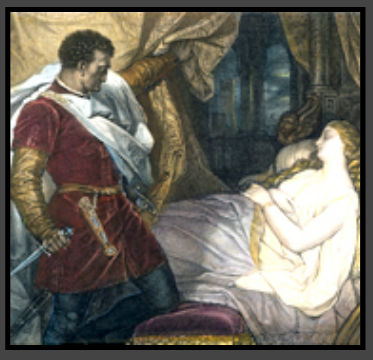
Othello kills his wife Desdemona. Engraving after Heinrich Hoffman, 19th century. Credit: The Granger Collection, New York.
Read More“The first Africans were brought to England as slaves by Elizabethan adventurers such as John Hawkins, John Lok, and Martin Frobisher who raided African coastal villages beginning in the 1550s. Often working as servants in aristocratic households, these involuntary immigrants to England also caused a sensation. Queen Elizabeth complained in 1596 that there are of late divers blackamoors brought into these realms, of which kind there are already here to manie.Here again Shakespeare reinforced popular racial prejudice, especially against miscegenation. In his early play,Titus Andronicus(1590), the villain Aaron the Moor has an illegitimate child with Queen Tamara. The infant is described as a joyless, dismal, black, and sorrowful issue . . . as loathsome as a toad and fit only to be killed. The portrayal in the mature play,Othello(1604), of the tragic Moor is more subtle, but the point about the unbridgeable nature of the racial divide is the same.” -
1603-1683 A.D.
Roger Williams
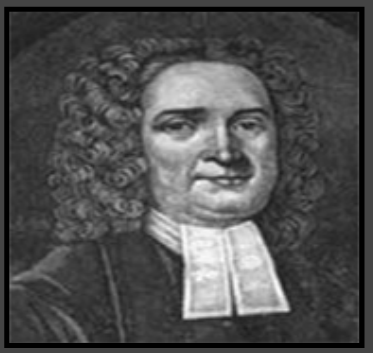
Roger Williams (1603-1683) Established the colony of Rhode Island, founded in 1636, as a beacon of freedom of conscience for believers of all religions.
Read More“Believing that God is too large to be housed under one roof, Williams came to the new world seeking religious liberty. He rejected the intolerance of the Puritan authorities who ran Massachusetts, and established his own settlement at Providence. Williams provided sanctuary to religious dissenter Anne Hutchinson, who also fled the Bay Colony. He also respected Native Americans, disapproved seif their lands, and maintained good relations with them.” -
1610 A.D.
The Tempest
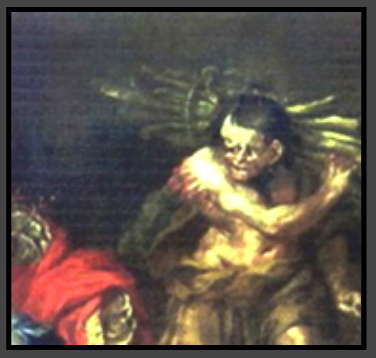
Carrying a load of wood in Shakespeare The Tempest,Caliban becomes a metaphor for the enslaved and the colonized. A detail from William Hogarth painting,Scene from Shakespeare’s The Tempest
Read More“In Shakespeare The Tempest(1610), Caliban a bestial creature spawned by a demon and an African witch-is forced to do the bidding of shipwrecked Duke Prospero. The nonwhite Caliban enslavement by white Prospero became a metaphor for the relationship between the races in English colonization. This process began with the Elizabethan subjugation of the Catholic Irish who were demeaned as a brutal, depraved race of savages. Stereotypes of the wild Irish colored later attitudes toward new world Amerindians.” -
1622 A.D.
Jamestown
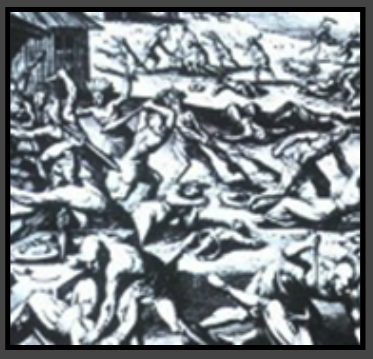
European colonists and Native Americans seek to annihilate each other, Virginia, 1622. A 1628 woodcut by Matthaeus Merian published along with Theodore de Bry’s earlier engravings in 1628 book on the New World.
Read More“Despite the mythology surrounding John Smith romance with Pocahantas (who married another white man, John Rolfe), the Virginia colonists from the first heaped upon the Indians maledictions and bitter execrations,and red-white relations quickly deteriorated. In the 1620s, tribes fearful of losing their land and way of life launched a bloody general uprising against the English colonists who retaliated with a war of extermination against the natives:The way of conquering them is much more easy than civilizing them.” -
1676 A.D.
New England
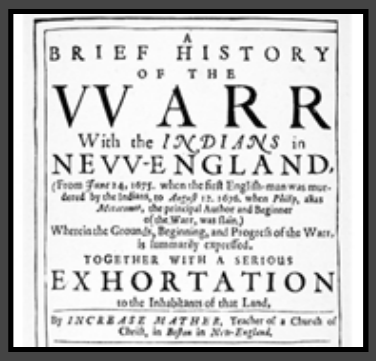
Puritan minister Increase Mather’s history of the New England Indian wars. Credit: The Granger Collection, New York.
Read More“In New England, the First Thanksgiving celebration in 1621 reflected real early efforts on the part of Pilgrims and Puritans to befriend and convert the local tribes (there were soon villages of praying Indians), but the trend-line ultimately mirrored negative developments in Virginia. In 1637, after years of bloody skirmishes with the hostile Pequot tribe, the Puritans and their Indian allies attacked a Pequot encampment on Mystic Island in the Connecticut River, killing 500 to 600 mostly women and children. Captain John Mason grimly noted:God was above them, who laughed his Enemies and the Enemies of his People to Scorn, making them as a fiery Oven.That same year, the Massachusetts Bay Colony imported the first black slaves by way of the West Indies. In 1676, New England erupted in a terrible racial war as the Wampanoag chief, Metacomet(King Philip), tried to drive the English into the sea. The Puritan authorities killed or enslaved and deported much of the native population, thereafter relying primarily on Africans for slave labor.” -
1703-1791 A.D.
Wesley
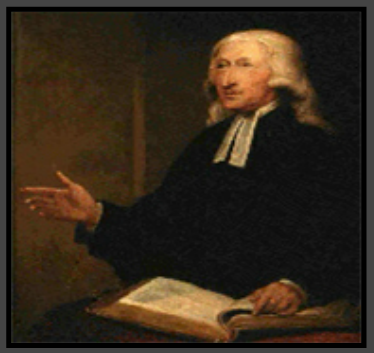
John Wesley (1703-1791) was the founder of Methodism who pioneered religious revivals in Great Britain and the United States.
Read More“John Wesley was an English clergyman who founded the Methodist movement, originally within the Church of England.From London suburbs to new world farms and plantations, where it was carried by missionaries on horseback, his creed helped transform the culture of both the middle class and the working class. Wesley promoted not only religious renewal but an ethic of self-respect and mutual aid.” -
1711-1796 A.D.
Raynal

Raynal (1711-1796) was an advocate of democracy prior to the French Revolution.
Read More“Raynal was closely associated with the philosophes like Voltaire and Rousseau who popularized Enlightenment ideas about freedom of thought and political reform. Exiled from France to Prussia and then Russia, he returned to France in time for the French Revolution of 1789. His last published work warned against using violence to pursue political change.” -
1720-1772 A.D.
Woolman
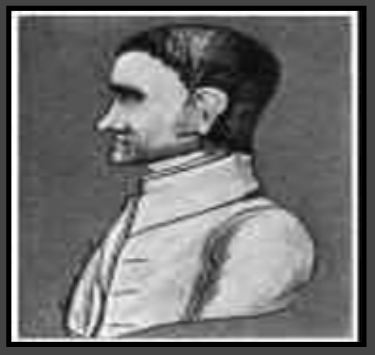
John Woolman (1720-1772) was a Quaker antislavery advocate from Pennsylvania who helped to convince American Quakers and others that slavery was an evil that should be abolished.
Read More“In 1743, John Woolman reluctantly wrote a bill of sale of a slave for his employer. The resulting crisis of conscience resulted in him preaching and writing against slavery. He tried to persuade slaveholders with a gospel of love as he traveled throughout Pennsylvania and into North Carolina. His Some Considerations on the Keeping of Negroes (1753) and his posthumously published Journal (1774) had considerable influence. Following Pennslyvania adoption of a gradual emancipation plan, the Pennsylvania Quakers petititioned the U.S. Congress to abolish slavery.” -
1724-1807 A.D.
John Newton
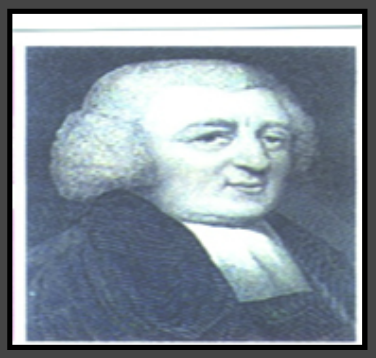
John Newton (1724-1807) was an English slave ship captain who found religion, became an Anglican clergyman, wrote the hymn, Amazing Grace, and championed the abolition of the slave trade.
Read More“John Newton returned to England in 1748 aboard the slave-ship, Greyhound, which almost foundered in a storm. Newton underwent a religious conversion. Gradually, he renounced the slave trade. He studied for the ministry, wrote Thoughts Upon the African Slave Trade (1787), and successfully worked with William Wilberforce for the English Parliament to abolish the trade in the year of his death.” -
1738-1794 A.D.
Cesare Beccaria
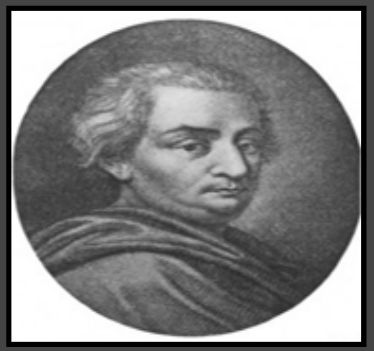
Cesare Beccaria (1738-1794) was an Italian philosopher who led the movement to make the criminal law more humane during the Enlightenment.
Read More“Cesare Beccaria was born in Milan and educated in a Jesuit college. His On Crimes and Punishments (1764) advocating reforming the criminal law as well as prison conditions was a pioneering work of criminology. His influence was international, extending to Thomas Jefferson and John Adams.” -
1743-1803 A.D.
Toussaint
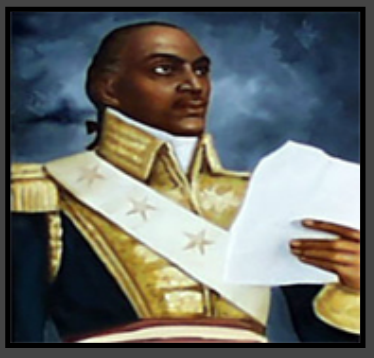
Toussaint Louverture (c. 1743-1803) was the slave-born liberator who led the revolution that made Haiti the first first independent black republic in the western hemisphere.
Read More“Toussaint Louverture was born a slave in Saint-Domingue. He led the Revolution that expelled the French and then the British from Haiti and became the first president of the independent country in 1803. He attempted to promote racial reconciliation and reached out in friendship to the United States, though his overtures were spurned.” -
1743-1803 A.D.
Buffon
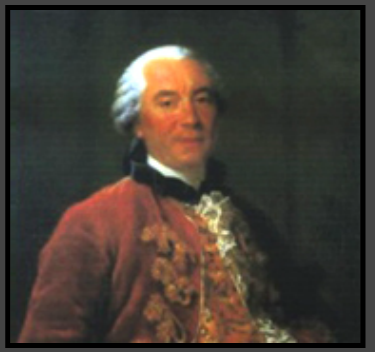
“The influential naturalist, Comte de Buffon (1707-1788), hoped that a change of climate might over the course of generations lighten the complexion of Africans. Portrait by Francois Hubert Drouais.”
Read More“George-Louis Leclerc, Comte de Buffon (1707-1788), was among the majority of Enlightenment intellectuals who still believed that racial differences were environmental in origin and susceptible to change. He speculated that if Africans were imported to Paris, fed a Gallic diet, and exposed to France temperate climate for, say, eight to ten generations, their descendents complexions would lighten up. Writing a generation later, the comparative anatomist Baron Georges de Cuvier was less optimistic about the potential for civilization of the negro race . . . [who] have always been savages.European intellectuals usually sympathized with the American Revolution, but that did not mean they had a high regard for the new world environment. Buffon was seconded by the Dutch naturalist Cornelius de Pauw in the view that the Americas were a degenerate zone of plants and animals inferior in both variety and vitality to the old world. According to Buffon, this inferiority extended to Amerindian males whose organs of generation are small and feeble compared to Europeans.” -
1750-1831 A.D.
Gregoire
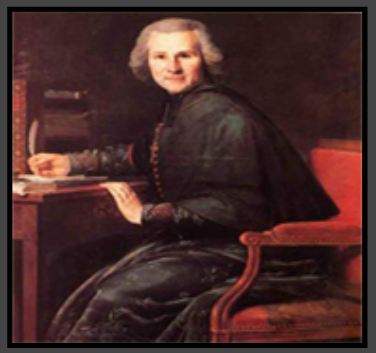
Abbe Gregoire (1750-1831) advocated abolition of slavery and black equality during the French Revolution.
Read More“Influenced by Julien Raimond, a free colored planter from the French colony of Saint-Domingue (Haiti), Gregoire became an influential member of the Society of the Friends of the Blacks. It was on Gregoire motion in May 1791 that the French Constituent Assembly passed its first law admitting some wealthy free men of color in the French colonies to the same rights as whites. Gregoire also favored political emancipation of French Jews.” -
1759-1797 A.D.
Wollstonecraft
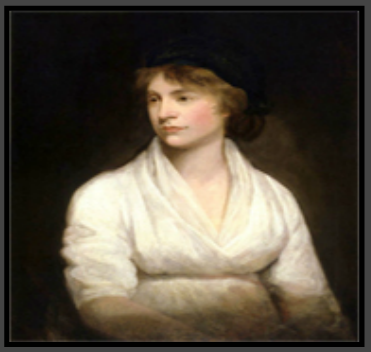
Mary Wollstonecraft (1759-1797) was a pioneering English feminist as well as friend of the French Revolution.
Read More“Mary Wollstonecraft followed A Vindication of the Rights of Men (1790), her defense of the French Revolution, with her A Vindication of the Rights of Women (1792), a pioneering defense of women rights. She also was one of the first writers of children books.” -
1770 A.D.
Voltaire

Enlightenment philosophe Voltaire (1694-1778) crusaded against the Catholic Church intolerance, but harbored racist views of Jews and Africans. Portrait by Nicolas de Largillier.
Read More“The Enlightenment of the eighteenth century was supposed to be an age of light that would replace religious dogmatism with the spirit of reason and science. Unfortunately, in some ways it failed to live up to this ambitious agenda, instead repackaging old prejudices in new racist ideologies.A case in point was France Voltaire whose motto was crasez l’inf me or crush the infamy of intolerance. He certainly did fight relentlessly to curb the power to persecute especially of the Catholic Church. Yet he also despised, not only Judaism as a religion, but Jews as an ignorant and barbarous people [combining] . . . the most sordid greed and most detestable superstition.Voltaire opposed making Jews full citizens of France. In addition, he adhered to racist polygenicism hypothesizing that black Africans were a separate, inferior species perhaps closer to apes than men.” -
1775 A.D.
Linnaeus
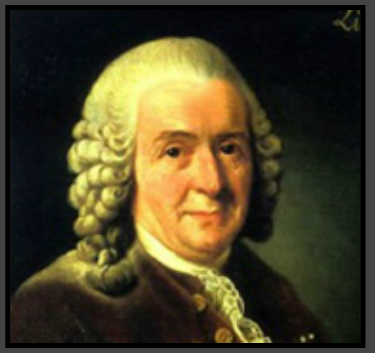
“Swedish botanist Carl Linnaeus (1707-1778) wrote Nature System which classified human beings as a primate species differentiated into four races with acute, inventive Europeans superior to crafty, indolent, and negligent Africans. Portrait by Alexander Roslin.”
Read More“The eighteenth century was the formative era of the scientific study of race and of pseudo-scientific racism. Carl Linnaeus, a Swedish botanist, flirted with ancient and medieval notions of monstrous races, but then classified human beings as primates differentiated into four racial varieties: white Homo Europaeus, dark Homo Asiaticus, red Homo Americanus, and black Homo Afer. Europeans were acute, inventive, and governed by laws Asians were yellow, melancholy,and rigid Africans were crafty, indolent, and negligent.” -
1775 A.D.
On the Varieties of Mankind
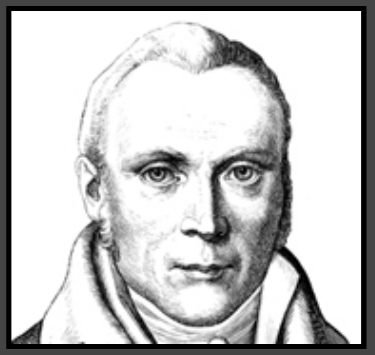
Johann Friedrich Blumenbach (1752-1840) invented the term Caucasian as part of his five-fold racial typology that was widely used to depict Europeans as superior to non-Europeans. Wood engraving, German from the 19th century. Credit: The Granger Collection, New York.
Read More“In the year of American Independence, 1776, Germany Johann Friedrich Blumenbach On the Varieties of Mankind coined the term Caucasians for whites and added a fifth race, Malays. Blumenbach classified races more on the basis of cranial features than skin color, and endorsed monogenesis or the single origin of the human race. But though he denied that Africans were nearer apes than other men, many racists used his writings to support that conclusion.” -
1789 A.D.
Thomas Jefferson
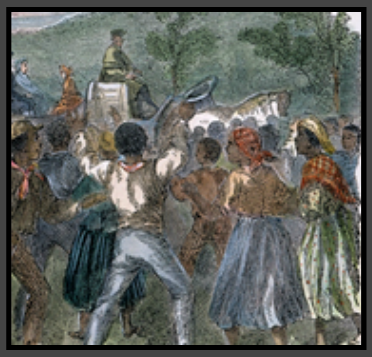
Thomas Jefferson, returning from Paris, 1789, welcomed by slaves on his Monticello plantation. American engraving, 19th century. Credit: The Granger Collection, New York.
Read More“Thomas Jefferson third U.S. President and an Enlightenment intellectual answered the disparagement of America in his Notes on the State of Virginia(1783). Jefferson extolled the beauty and fecundity of new world flora and fauna. Yet his enthusiasm did not extend to the slaves with African roots who worked on his plantation at Monticello. With great diffidence, he hazarded the opinion that Africans are inferior in the faculties of reason and imagination. In contrast, Jefferson vociferously defended the intelligence, sublime oratorical skills, and other talents of Native Americans; he viewed them as noble savages whose limitations were the product not of nature but of circumstance. In fact, Jefferson even suspected that they were really white of the same module with the Homo sapiens Europaeus but merely appeared to be copper-colored because of exposure to the sun and the use of bear grease. Jefferson very different views of Africans and Indians dictated his very different visions of their respective futures. He wanted slavery gradually ended, but the freed slaves colonized back to Africa because he could not imagine whites and blacks living together peaceably as equal citizens in American society. On the other hand, he wanted Native Americans removed westward where freed from corrupting influences they could be gradually taught the higher virtues of white civilization by missionaries and humanitarians like himself.” -
1791 A.D.
Herder
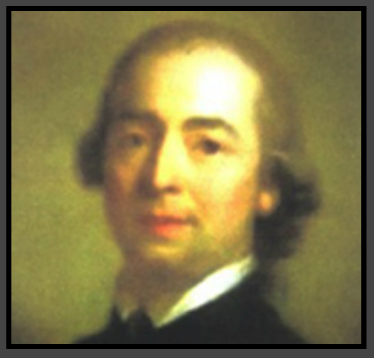
German Romantic Johann Gottfried von Herder (1744-1803) extolled the virtues of Germanys Volk while speculating that Africans were richly endowed for sensual pleasures but lacked nobler gifts. Credit: The Granger Collection, New York.
Read More“By the late 1700s, intellectual fashions in both Europe and America had begun to shift from the cult of reason to the glorification of feeling. Embracing Rousseaus privileging of nature over civilization, Johann Gottfried von Herder (1744-1801) extolled the primitive German Volk or folk as the embodiment of true wisdom. Herder combined Romantic nationalism with an organic view of historical progress in which there was an evolution from the human races Hebrew infancy through its Egyptian childhood to its Greek adolescence to its Roman adulthood and subsequent development. All cultures according to Herder had unique value, yet his belief in racial hierarchy was made clear by remarks such as that nature had placed the black [man] next to the ape, and that Africans were richly endowed for sensual pleasures but lacked nobler gifts. The Chinese, Herder viewed as a fossil civilization, developmentally retarded because in their own corner of the earth, [they] refrained, like the Jews, from mixing with other peoples.” -
1799 A.D.
Mixed-Race People
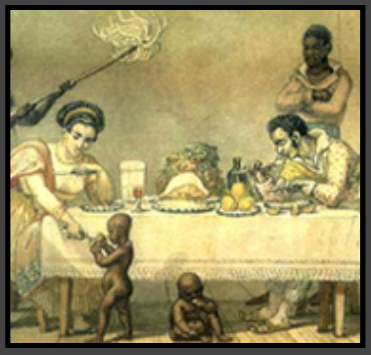
A mixed-race family in Rio de Janeiro.
Read More“Whether red or black, slaves in the Catholic colonies were baptized and allowed, at least in theory, to marry. Yet they were very much at the bottom of the pecking order. On the other hand, hyphenate mixed-race people, both mestizos (red and white) and mulattos (black and white), fared somewhat better. One reason was that Spanish and Portuguese men were not typically blonde-haired and blue-eyed like Englishmen. What has been called their somatic norm image was darker; and they seem to have been more willing to cohabit with and even marry women with some Amerindian or African ancestry. One Brazilian proverb had it that the mulatta is the real woman.Another reason was that the Conquistadors were greatly outnumbered and desperately needed to rely on mestizos and mulattos (often emancipated slaves) to help them administer their colonies. Also, compared to the British colonies, class uniquely mitigated color in Brazil where another proverb had it that money whitens the skin.Even so, racist oppression was the lot of most people of color especially,poor people of color in Latin Americas pigmentocracy.” -
1800 A.D.
Russian expansion
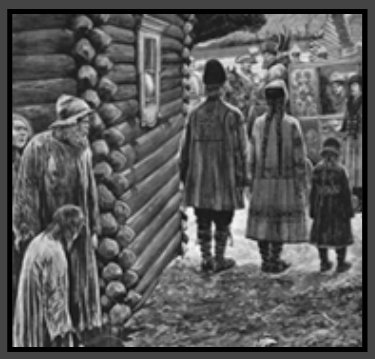
As the Russian Empire absorbed the Crimea in 1783 and expanded primarily eastward, a Czarist official manufactured Potemkin’s villages to create the false impression of a happy peasantry. A 1905 drawing by Richard Caton Woodville. Credit: The Granger Collection, New York.
Read More“By the nineteenth century, colonialism and imperialism generally involved overseas expansion. There were two major exceptions. One was American westward expansion. The other was the continental expansion of the Russians who incorporated parts of Eastern Europe into their empire, but expanded primarily east. They conquered or displaced Asian peoples including one million Muslim Circassians in the Caucacus who were forced into exile. They denied most of their own peasant population freedom until serfdom was abolished in 1861.” -
1802-1885 A.D.
Victor Hugo
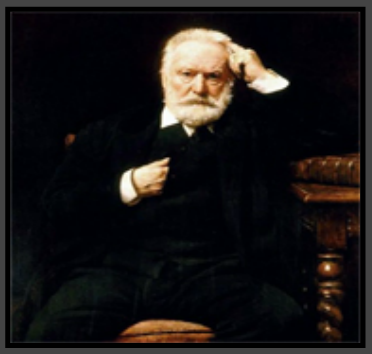
Victor Hugo (1802-1885) was a French writer and humanitarian who shaped the conscience of nineteenth century Europe.
Read More“Hugo most famous work was Les Mis rables (1862). For his opposition to the dictatorship that Napoleon III imposed on France in 1851, he went into a 20 year exile. He convinced the English government to commute the death sentences of Irish revolutionaries convicted of murder. His religious viewed evolved from staunch Catholicism to a skeptical rationalism like Voltaire.” -
1802-1887 A.D.
Dorothea Dix
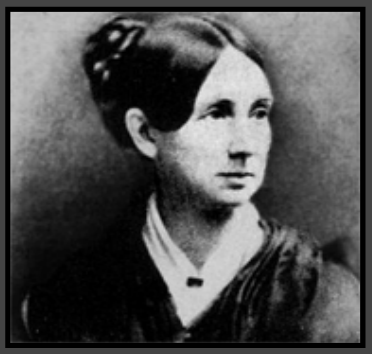
Dorothea Dix (1802-1887) was a New England-born teacher and reformer who helped revolutionize the care of the mentally ill in the United States.
Read More“Dorothea Dix was born in humble circumstances. Unsatisfied with the usual careers open to women, she suffered a nervous breakdown and recuperated in England where she recovered and devoted herself to studying the treatment of the insane. Returning to Massachusetts in the 1840s, she reported on conditions in the state to the legislature. Her eloquent Memorial declared: I proceed, Gentlemen, briefly to call your attention to the present state of Insane Persons confined within this Commonwealth, in cages, stalls, pens Chained, naked, beaten with rods, and lashed into obedience. Her efforts resulted in the reform of conditions in the state insane asylum as Worcester.” -
1804-1876 A.D.
George Sand
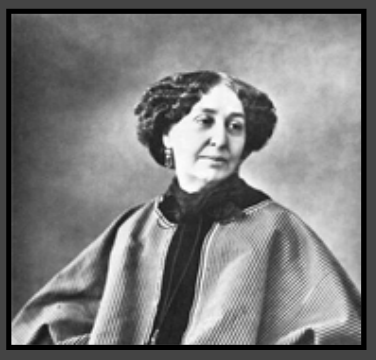
“George Sand (1804-1876), pseudonym of Amandine Aurore Lucile Dupin, Baronne Dudevant, was a model for the nineteenth-century new women who challenged prevailing gender role stereotypes.
Read MoreA novelist and social critic, she scandalized Paris by dressing in male attire, smoking tobacco, having high profile romances with Alfred de Musset, Fredric Chopin, and Gustave Flaubert, as well as a rumored lesbian affair with actress Marie Dorval.” -
1806-1873 A.D.
John Stuart Mill
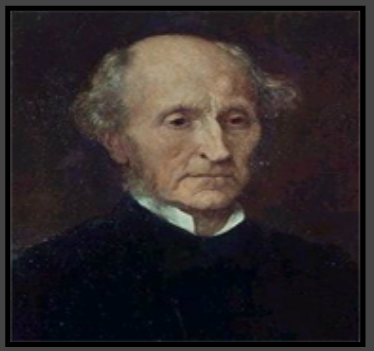
John Stuart Mill (1806-1873) was an eloquent opponent of slavery and racial inferiority whose On Liberty(1859) is a classic defense of the principles of freedom of speech, thought, and association.
Read More“The son of British philosopher James Mill, John Stuart Mill was a childhood prodigy who initially embraced Jeremy Bentham philosophy of Utilitarianism the greatest happiness for the greatest number, but later criticized for a lack of moral clarity. He advocated democracy and giving voting rights to working people, yet also warned against tyranny of the majority.Similarly, he was a proponent of the free market economy, yet recognized that that was a role for government regulation in the interests of public welfare.” -
1817-1885 A.D.
Frederick Douglass
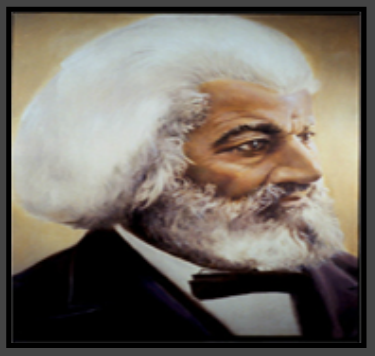
Frederick Douglass (c.1817-1885) was an fugitive slave who became a leader of the American abolitionist movement and won fame as an orator, writer, and diplomat.
Read More“Frederick Douglass escaped from slavery in Talbot County, Maryland, to become the most prominent black abolitionist. His autobiography, Narrative of the Life of Frederick Douglass, an American Slave (1845), went through many editions and was an international best-seller. He knew John Brown and Abraham Lincoln, and served as a U.S. Consul General to the Republic of Haiti after the Civil War.” -
1818-1883 A.D.
Karl Marx

Karl Marx (1818-1883) was a German philosopher and activist who wrote the Communist Manifesto(1848), yet inspired not only communist revolutionaries but democratic socialists committed to peaceful change to improve the lives of the working class.”
Read More“Educated in elite German universities, the young Marx sought to turn Hegels idealistic philosophy on its head by emphasizing the preeminence of the material basis or economic substructure of history. He combined radical journalism and politics during the turbulent 1840s as he transited between Germany, France, and Belgium before finding a safe harbor in London. His historical model of the transition from feudalism to capitalism profoundly influenced subsequent historical study, though his further postulation that there would be a culminating transition to a property-less communist utopia by means of revolution of the proletariat did not unfold as he expected even in countries like Russia and China that have experienced communist revolutions. Marx left open the possibility that the working class could be empowered by peaceful political and economic means, which more closely fit developments in Western Europe and other democratic countries.” -
1820-1906 A.D.
Susan B. Anthony
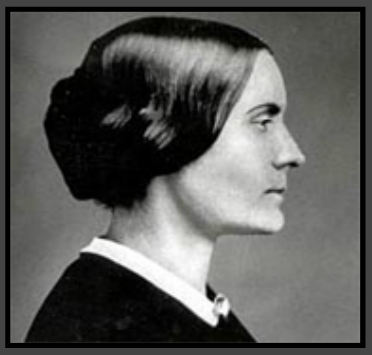
Susan B. Anthony (1820-1906) was a pioneering leader of the movement to secure women rights in the United States.
Read More“Before the Civil War, Anthony left a career as a teacher to devote herself to the causes of temperance and antislavery. Brought up a Quaker, she increasingly became critical of organized religion. In January, 1868, Anthony published The Revolution, a journal, whose motto was the true republic men, their rights and nothing more women, their rights and nothing less. She was frustrated when the Fifteenth Amendment to the U.S. Constitution ratified in 1870, gave black men but no women the right to vote. In 1869 with Elizabeth Cady Stanton founded the National Women Suffrage Association (NWSA), of which she later became president. In 1872, she was arrested for practicing civil disobedience for trying to vote in the presidential election. In 1890, she promoted the merger NWSA with the more conservative American Woman Suffrage Association (AWSA), creating the powerful National American Woman Suffrage Association that was at the center for the next quarter of a century of the ultimately successful struggle to grant American women the vote.” -
1820-1910 A.D.
Florence Nightingale
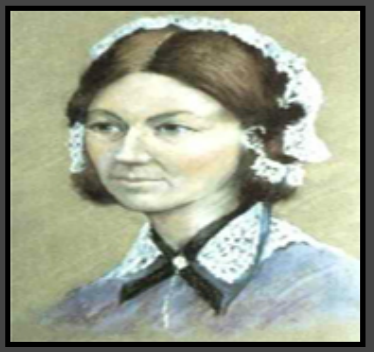
Florence Nightingale (1820-1910) became known as the Lady of the Lamp for her pioneering efforts raising the nursing profession to a new level of compassion and professionalism. She also was a feminist.
Read More“Florence Nightingale emerged as a major figure for her work reforming the treatment of wounded soldiers during the Crimean War (1853-1856). She became a leader in the campaign to improve nurse education, and also advocated the women emerge into the world to pursue careers in social service.” -
1828-1910 A.D.
Leo Tolstoy
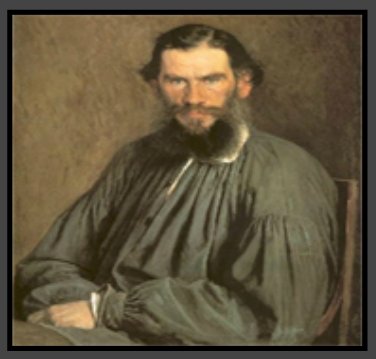
Leo Tolstoy (1828-1910) was the famed Russian novelist who championed the cause of the peasantry and the philosophy of nonviolence resistance.
Read More“Born into an aristocratic family, Tolstoy repudiated his own class to champion the Russian peasants who were not freed from serfdom until 1861. His novels depicting Russian life,War and Peace and Anna Karenina,are the masterpieces of nineteenth century realist fiction. Living an austere rural life, Tolstoy personified his philosophy of harmonious living, peaceful anarchism, and nonviolent resistance. He influenced both Gandhi and Rev. Martin Luther King, Jr.” -
1830-1885 A.D.
Helen Maria Hunt Jackson
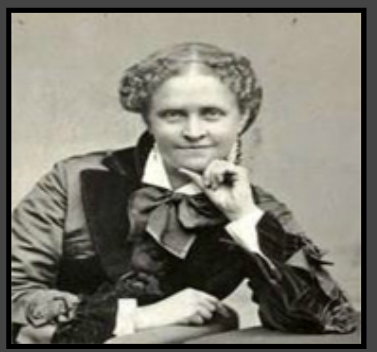
Helen Maria Hunt Jackson (1830-1885) was an American writer who became famous for her work exposing the ill treatment of Native Americans.
Read More“The daughter of a professor of philosophy at Amhrest College, she was educated in New England and New York. Her interests turned to the plight of the Native Americans after attending a lecture in Boston by Ponca Chief Standing Bear, who described the forcible removal of the Ponca Indians from their Nebraska reservation. Her exposé, A Century of Dishonor, condemning the injustices of American Indian policy was published in 1881. Subsequently touring Los Angeles, she met Don Antonio Coronel, a former mayor and city councilman , who told her of the plight of the Mission Indians after 1833, when secularization policies led to the sale of mission lands and the dispersal of their residents. She dramatized this theme in her best-selling novel, Ramona.” -
1832-1912 A.D.
Edward Wilmot Blyden
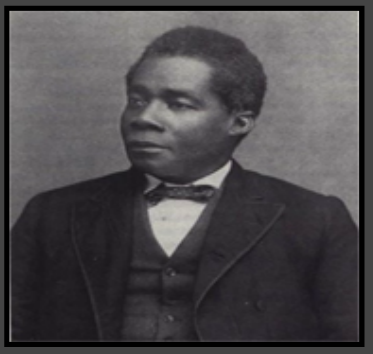
Edward Wilmot Blyden (1832-1912) founded the modern pan African movement looking toward the liberation of Africa from colonial dependence and the restoration of African cultural greatness.
Read More“Born into a free black family on Charlotte Amalie, capitol of St. Thomas, Danish Virgin Islands, tried to obtain a theological education in the pre Civil War U.S., but was denied the opportunity because of his race. He was sent as an agent of the American Colonization Society to Liberia, the American Black to Africa experiment that in 1847 became an independent nation. Devoting the rest of life to Africa as an educator, publicist, and diplomat, he traveled widely including an 1866 trip to Jerusalem about which he wrote in From West Africa to Palestine (1873). He appealed to Christians, Jews, and Muslims all to contribute to the revitalization of Africa. His thought influenced such influential figures as W.E.B. Du Bois, Marcus Garvey, Cheikh Anta Diop, George Padmore, and Kwame Nkrumah. Blyden also sympathized with the aspirations of the Jewish people for a homeland in the Middle East.” -
1840-1902 A.D.
Émile Zola
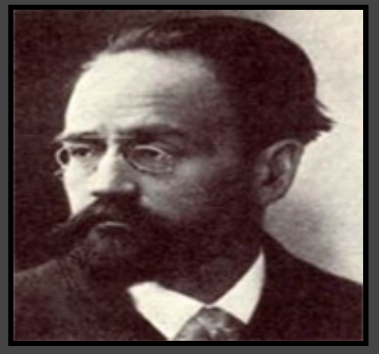
Émile Zola (1840-1902) was a French novelist who exposed the degrading conditions of working-class life, and then staked his reputation on championing the cause of Jewish officer Captain Alfred Dreyfus, wrongly convicted for espionage and treason.
Read More“The author of 20 naturalistic novels collectively known as Les Rougon-Macquart, he wrote an open letter to the French President, Félix Faure, titled Accuse, accusing the French General Staff of acting out of antisemitism to wrongfully convict artillery captain, Alfred Dreyfus, to life imprisonment on Devil’s Island in French Guiana. Himself convicted of libeling the French generals, Zola fled to London where he remained until the French government fell and was replaced by a new government that vindicated Dreyfus.” -
1840-1904 A.D.
Chief Joseph
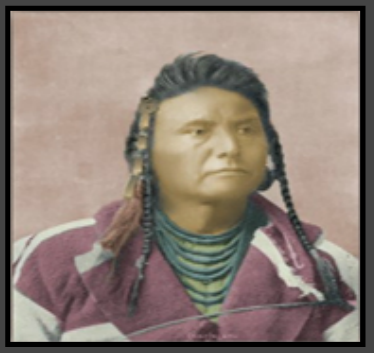
Chief Joseph (1840-1904) was the chief of the Wal-lam-wat-kain (Wallowa) band of who spoke out eloquently against the shame of U.S. government policy toward Native Americans.
Read More“His tribe was the target of General Oliver O. Howard attempt to forcibly remove his band and the other non-treaty Indians to a reservation in Idaho. The Nez Perce accepted an 1855 treaty, but resisted an 1863 treaty drastically reducing their land. Becoming chief in 1871, he led 800 of his people on an extraordinary 1700 mile trek to the Canadian border in 1877 to escape capture. He surrendered after suffering 200 deaths. In a punitive move, the Army ended up deporting the band to Oklahoma where many died of disease. Toward the end of his life, his spoke out against the shame of American Indian policy. His doctor said he died of a broken heart.” -
1848 A.D.
Curse
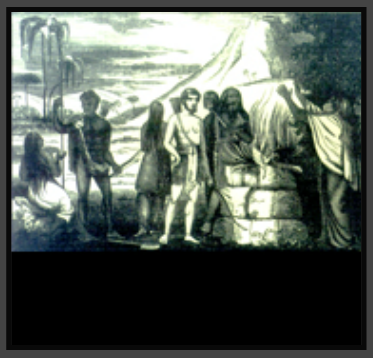
“Noah (far right) curses Ham and his wife (far left), the parents of the Negro race, according to the original caption from Josiah Priest’s Slavery As It Relates to the Negro or African Race (1843).
Read More“The American Schools pseudo-scientific polygenetic justification of slavery contradicted the biblical account that God made of one blood all nations of men. This is why many Southerners and other religious-minded Americans turned instead to bible-based rationales for enslavement of blacks. Apologists for the South peculiar institution pointed out that the biblical patriarchs like Abraham owned bondsmen, and that Peter, Titus, and Luke in the New Testament urge slaves to obey their masters. The next step was to fuse slavery with race by arguing that black slaves were cursed descendants of Noah son, Ham, or that they bore the mark of Cain which was punishment for Cain slaying of his brother, Abel. As James Henry Hammond, a Southern proslavery fire-eater, put it on the floor of Congress: The doom of Ham has been branded on the form and features of his African descendants. The hand of fate has united his color and destiny. Man cannot separate what God has joined. According to Samuel Cartwright of Louisiana, the blackness of the prognathous race [negroes] . . . is not confined to skin color, but pervades . . . the whole inward man down to the bones themselves. Linking Ham African son Cush with Cain, Cartwright speculated: Who knows but what Canaan mother may have been a genuine Cushite, as black inside as out, and that Cush, which means blackness, was the mark put upon Cain? . . . The negro through all ages of the world has carried with him . . . the mark of blackness fitting him only for slavery. In 1860, Cartwright tried to give the polygenetic account of creation a biblical spin by arguing that, before Adam and Eve were created, blacks were spawned by the guileful serpent in the Garden of Eden.” -
1848 A.D.
The Proslavery Argument
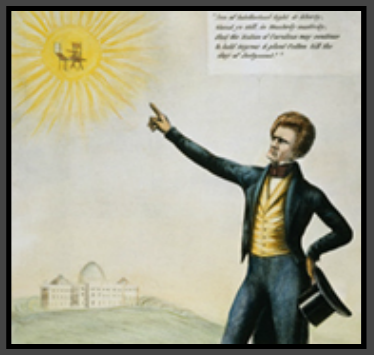
Proslavery South Carolina Senator John C. Calhoun pictured as biblical Joshua ordering the sun to stand still. 1848 cartoon. Credit: The Granger Collection, New York.
Read More“White Southerners by 1861no longer viewed the enslavement of African Americans as just a necessary evil that might pass away with time; instead, it was embraced as a positive good that should last for perpetuity. Their only disagreement was over not whether it was just, but how to justify it. Initially, Virginian George Fitzhugh in Sociology for the South; or, The Failure of Free Society(1854) took the philosophical high ground by arguing that Southern slavery should be defended, not solely on the basis of race, but as a benevolent, paternalistic social system ethically superior to the North’s callous, impersonal wage slavery or capitalist exploitation of free labor. But when pressed to explain why the South did not also make slaves of poor whites, the best Fitzhugh could answer was: we don’t need to because we have black ones.” -
1849-1887 A.D.
Emma Lazarus
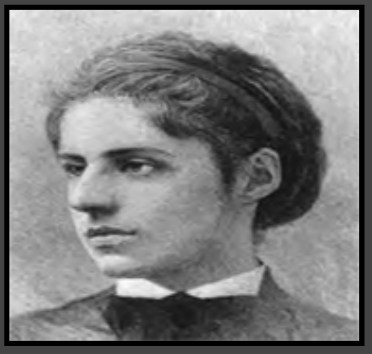
Emma Lazarus (1849-1887), a crusader for immigrant rights, authored the famous inscription on the base of the Statue of Liberty in New York Harbor:Give me your tired, your poor/Your huddled masses yearning to breathe free…
Read More“An American poet born in New York City to a Jewish family with deep roots in American history, she was an admirer of Ralph Waldo Emerson who became an advocate of Jewish refugees after the anti-Jewish Russian pogroms of the 1880s, and advocated the cause of all immigrants in her poem,The New Colossus,engraved on a bronze plaque at the base of the Statue of Liberty in 1912.” -
1850 A.D.
The Anglo-Saxon Myth
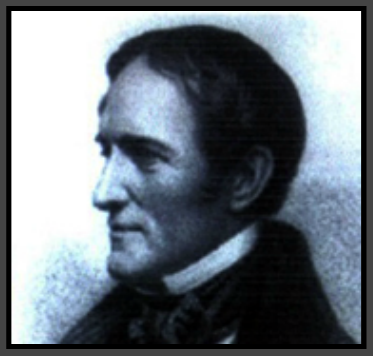
American historian William H. Prescott (1796-1859) applied the theory of the superiority of Teutonic peoples led by Anglo-Saxons-to American history. Mezzotint, 1858. Credit: The Granger Collection, New York.
Read More“Reacting against the French Revolution, German Romantics like Christoph Meiners adopted increasingly harsh versions of racial nationalism. Applying aesthetic criteria to racial ranking, Meiners Outline of the History of Humanity(1798) equated beauty with intelligence, invoking Praxiteles Statue of Apollo as the example of human physical perfection. The beautiful, intelligent people were fair the darker, colored peoples were ugly and semi-civilized. In the nineteenth century, theories attributing the progress of European civilization to the superiority of Teutonic peoples became popular not only in Germany but in the United Kingdom and the U.S. Historians like John Lothrop Motley, William H. Prescott, and Edward A. Freeman traced the origins of liberty and democracy to the genius of the Anglo-Saxons who invaded medieval England and settled in colonial America.” -
1852 A.D.
Anti-Hispanic Racism
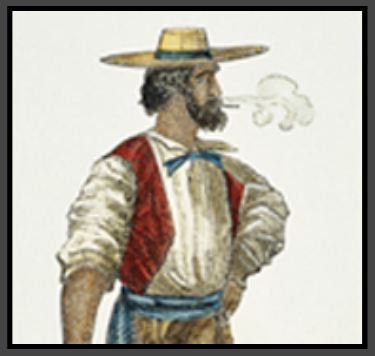
Spanish-speaking Californians faced harsh discrimination after the American Conquest and Gold Rush. American engraving, 1852. Credit: The Granger Collection, New York.
Read More“In addition to Indians as a victims of racist Manifest Destiny ideology were the inhabitants of the Southwest and California, incorporated by conquest. The Anglo settlers who came to dominate Texas and California very early on began stereotyping the Spanish-speaking population as greasers a term that connoted a combination of dirty, shiftless habits and racial inferiority. As the popular writer O. Henry later rhymed, What boots it if we killed/Only one greaser/Don Jose Calderon?/This is your deep revenge,/You have greased all of us,/Greased a whole nation/With your Tamales. Probably the fear of incorporating a new dense, racially-mixed population prevented the United States from annexing all of North Mexico in 1848.In the California gold fields, where white miners shot Indians for sport, they also persecuted and lynched Spanish-speaking immigrants from Mexico Sonora and Latin America.” -
1854 A.D.
Crania Americana
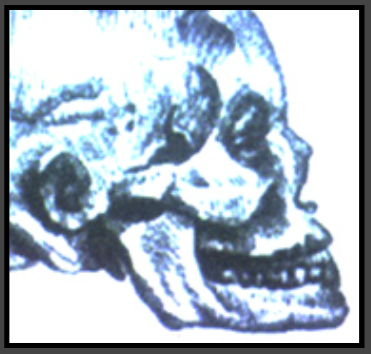
Dr. Samuel G. Morton of the pre-Civil War American School of Ethnology analyzed this semi-embalmed cranium of a Negress from ancient Egypt to prove that Africans were a separately created, inferior species. From Joshia C. Nott, Types of Mankind(Philadelphia, 1854).
Read More“Proslavery Southerners joined Northern racists in developing the American School of ethnology before the Civil War. These pseudo-scientists used racial measurement of human skulls to buttress the polygenetic theory that Africans were a separate, inferior species. Philadelphia Dr. Samuel G. Morton followed up Crania American(1839) with Crania Aegyptica (1844), based on a collection of mummy skulls given him by English-born Egyptologist George R. Gliddon, who served as American Consul in Cairo. Morton and his collaborators found that Native American skulls from their own time were basically the same as those of the ancient people buried in mounds of the Ohio Valley. Morton racist conclusions were popularized by Alabama physician Josiah C. Nott, coauthor with George R. Gliddon of Types of Mankind(1854) which assured readers that Caucasians had in all ages been the rulers, and that their destiny was to conquer and hold every foot of the globe where climate does not interpose an impenetrable barrier. George Combe whose specialty was phrenology or the study of bumps on the skulls of living people reached similar conclusions about the superiority of the Anglo-Saxon race. The theory that the races were distinct species stubbornly persisted even after Charles Darwin the Origin of Species (1859) and the Descent of Man (1871).” -
1856-1939 A.D.
Sigmund Freud
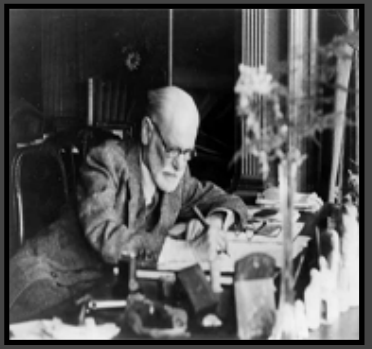
Sigmund Freud (1856-1939) pioneered psychoanalysis and revolutionized the treatment of mental illness.Library of Congress Prints Photographs Online Catalog.
Read More“Freud was born in what is now the Czech Republic. As a physician in Vienna, his clinical practice led him to develop psychoanalysis which featured Freud concept of the unconscious, his theory of dreams, and such controversial notions as the death instinct. A social critic as well as a medical practitioner, Freud viewed sexual repression as the major cause of neurosis and favored more permissive attitudes toward sex. A Jew, he attributed his commitment to alleviating human suffering partly to his membership in a victimized minority group.” -
1858-1928 A.D.
Emmeline K. Pankhurst
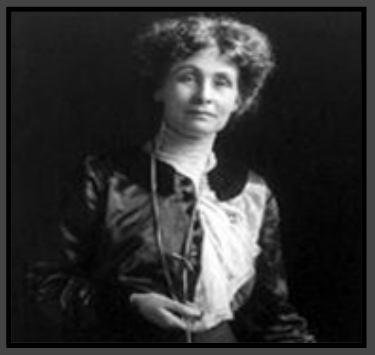
Emmeline K. Pankhurst (1858-1928) personified British women struggle for the vote in the early twentieth century.
Read More“Founding the Women Social and Political Union (WSPU) in 1905, she became famous for militant tactics including nonviolence civil disobedience and hunger strikes while she was in jail. During World War I, she suspended her crusade in the name of national unity, but won a partial victory in 1918 when women over thirty were granted the vote. Full enfranchisement of women came in 1930, shortly after her death.” -
1858-1942 A.D.
Franz Boas
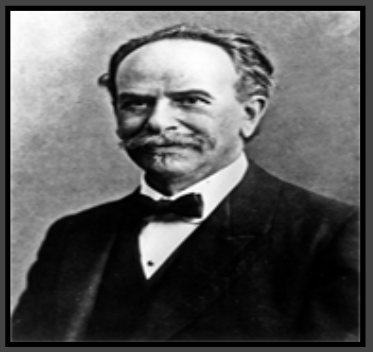
Franz Boas (1858-1942)the Father of Anthropology promoted cultural relativism and tolerance.
Read More“A German born anthropologist made Columbia University the leader in his new discipline. He debunked theories of racial superiority and adhered to the doctrine that all cultures had intrinsic value, and that the anthropologist should try to achieve an empathetic understanding of their values and ways of life. He combated both European fascism and American racism. His outstanding pupils included Ruth Benedict and Margaret Mead.” -
1859-1839 A.D.
Havelock Ellis
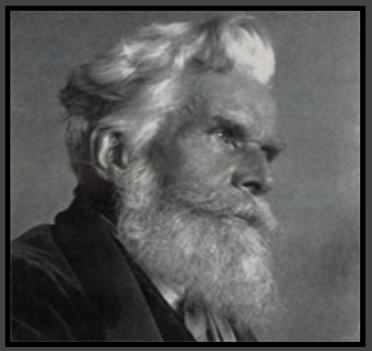
Havelock Ellis (1859-1839) was an English sexual reformer who book,Sexual Inversion,co-authored with John Addington Symonds, was the first English medical text book on homosexuality, which Ellis did not consider a disease.
Read More“Ellis textbook on same sex relationships was considered obscene by the authorities, and booksellers were prosecuted for selling it. Though Ellis is credited with inventing the term, homosexuality,he did not approve of it. His influence was widespread. Among the concepts he pioneered were autoerotism and narcissism, both of which later developed by Sigmund Freud.” -
1860-1935 A.D.
Jane Addams
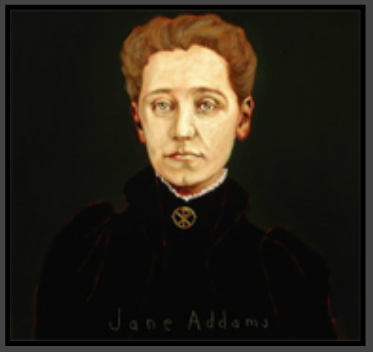
Jane Addams (1860-1935) was a pioneering social worker who founded Hull House in Chicago in 1889 to help the poor and immigrants.
Read More“The daughter of a wealthy Illinois banker and politician, she graduated Rockford Seminary (now Rockford College). She deferred her ambitions for a medical career because her parents feared it would impair her marriage prospects. In fact, she never married. After visiting Toynbee Hall in East London, she resolved to found an American settlement house with the dual purpose of meeting the needs of the working class and immigrant families and providing a socially-relevant outlet for young educated women. Hull House facilities included a night school for adults, kindergarten classes, clubs for older children, a public kitchen, an art gallery, a coffeehouse, a gymnasium, a girls club, a swimming pool, a book bindery, a music school, a drama group, a library, labor-related divisions, and an adult night school that provided continuing education classes.” -
1861 A.D.
Descent of Man
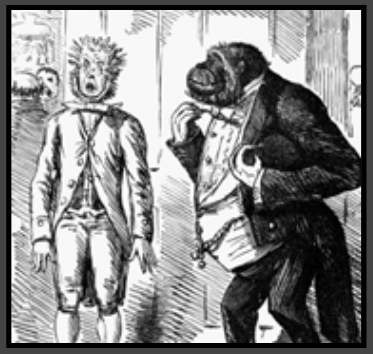
Reflecting popular discomfort in England and America with the implications of Darwin’s theory for human origins, a satire depicted a flustered servant greeting:Mr. GG-G-O-O-O-RILLA.Cartoon by John Leech, 1861. Credit: The Granger Collection, New York.
Read More“Charles Darwin, a naturalist, had a greater expertise about evolutionary natural selection among varieties of pigeons than among people. Yet he opened the door to the racist exploitation of his ideas by prophesying in the Descent of Man(1871) that at some future period, not very distant as measured by centuries, the civilized races of mankind will almost certainly exterminate, and replace, the savage races throughout the world.Historian and lecturer John Fisk, a Darwinian popularizer, was quick to draw a link for American audiences with the Anglo Saxons as the prime example of master colonizers among the higher races. According to Fisk, they have carried out their progressive work by putting such backward races as Americas indigenous peoples on the road to extinction.” -
1862 A.D.
Manifest Destiny
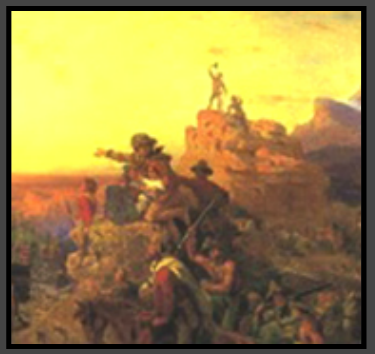
Painting Westward the Course of Empire Takes Its Way glorifying American continental expansion. By Emanuel Leutze,1862. Credit: The Granger Collection, New York.
Read More“In 1845, on the eve of the U.S. war with Mexico, John L. Sullivan, editor of the Democratic Review christened American continental expansion Manifest Destiny. This was the American nation mission to overspread the continent allotted by Providence for the free development of our yearly multiplying millions. The Manifest Destiny ideology fused a religious sense of chosenness with belief in the superior ability of whites. Led by the Anglo-Saxon race, they would work out the grand experiment of Republican government on this continent.” -
1866-1925 A.D.
Sun Yat-sen
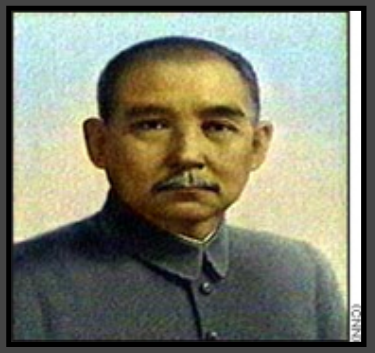
Sun Yat-sen (1866-1925) is revered as The Father of Modern China for striving to bring his nation and people into the modern world.
Read More“Born in a peasant family in Guangdong province, he was traveled abroad to work and study in Hawaii and Hong Kong where he adopted liberal political ideas and became critical of the traditional Chinese social order. Returning to China in the 1880s, he lead revolts against the Qing Dynasty, which finally collapsed in 1911. He became the first provisional president of the the Republic of China (ROC), founded in 1912. Attempting to free China from domination by warlords, he articulated the Three Principles of democracy, nationalism, and socialism as a new creed.” -
1868 A.D.
Klan
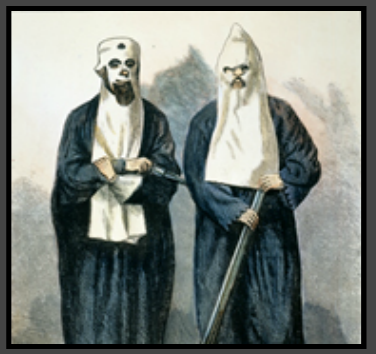
Two members of the post-Civil War Ku Klux Klan that terrorized African Americans. Contemporary engraving. Credit: The Granger Collection, New York.
Read More“The collapse of the Confederacy in 1865 rendered moot proslavery arguments. But the racist impulse to subordinate African Americans continued. The master-slave relationship gave way to racial segregation of blacks. A new, more impersonal mode of domination was imposed in schools, jobs, housing, and public accommodations, as was political disenfranchisement. During slavery times, Southern whites had feared black rebels like Nat Turner, but preferred to picture slaves as docile Sambos. Such patronizing images of childlike dependence fell away during Reconstruction as racial friction magnified white sexual and economic fears of blacks. Perhaps the low point was reached in 1900 with the publication of Charles Carroll The Negro a Beast. Carroll revived the pre-Adamite theory that Africans were a separately-created species, and he openly equated them with apes. His genocidal wrath was reserved for the mixed-race or mulatto offspring of whites and blacks: These monstrosities have no rights social, financial, political, or religious that man need respect; . . . not even the right to live. In 1892, lynchings in the U.S. peaked at 230 including 161 blacks, many wrongly accused of sexually assaulting white women.” -
1868-1963 A.D.
William Edward Burghardt Du Bois
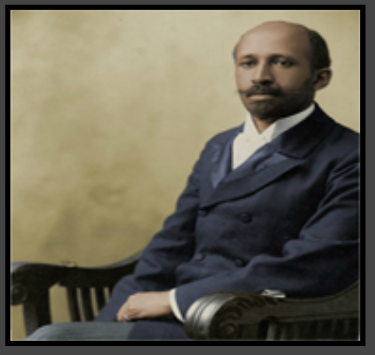
William Edward Burghardt Du Bois (1868-1963) was an African American intellectual who was a prolific writer, champion of the downtrodden, and cofounder of the National Association for the Advancement of Colored People (NAACP).
Read More“Born in Great Barrington, Massachusetts and educated at Harvard and major German universities, Du Bois pioneered the scientific study of race relations in his book The Philadelphia Negro (1899). He broke with Booker T. Washington accommodationist racial philosophy to found the militantly integrationist NAACP in 1909. He was at the forefront at African-American and Pan-African thought for the next half century, eventually taking leftwing positions that won him the suspicion of the U.S. government during the Cold War. He died in Ghana in 1963.”
